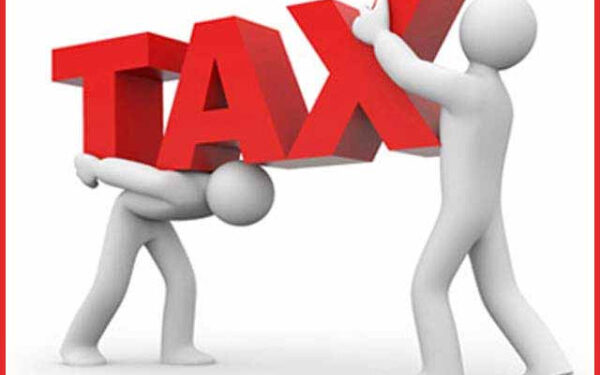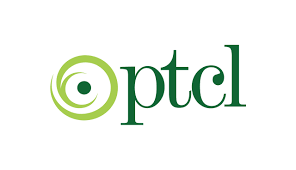Karachi:The salaried class in Pakistan continues to shoulder an increasingly disproportionate share of the country’s tax burden. Despite being among the most compliant and documented taxpayers, their hardships are growing as tax rates climb and available facilities diminish. As Pakistan struggles with economic challenges and revenue shortfalls, there is a pressing need for comprehensive tax reforms to create a fairer and more sustainable taxation system.
Salaried Class: The Backbone of Direct Tax Collection
The salaried class in Pakistan is among the few segments of the population that regularly files tax returns. Their tax obligations are automatically deducted at the source from their monthly salaries through a withholding tax mechanism, making them one of the most transparent contributors to the national exchequer.
Yet, despite their compliance, the salaried class often finds itself bearing the brunt of new tax measures. Every budget cycle seems to bring either an increase in tax rates or the removal of previously available reliefs, further tightening the noose around honest taxpayers.
Government’s Justification for Increased Burden
The government frequently defends the increased reliance on the salaried class by pointing out difficulties in tax collection from other sectors, particularly the large informal economy. Sectors such as agriculture, retail, and small businesses remain vastly under-taxed or entirely outside the tax net.
While the government’s argument has some merit, this continued focus on the salaried class is counterproductive. It discourages honesty, pushes more people into informal or cash-based work to avoid taxes, and ultimately undermines the broader goal of expanding the tax base.
Alarming Rise in Tax Collection from Salaried Individuals
According to official government statistics, tax collection from the salaried class is projected to surge by 55 percent in the current fiscal year compared to the last fiscal year’s collection of Rs 368 billion.
This dramatic rise not only highlights the growing burden on salaried individuals but also reflects a dangerous trend: the government’s increasing dependence on a narrow taxpayer base instead of undertaking broader reforms to bring more sectors into the formal economy.
The Urgent Need for Relief Measures
To ease the financial pressure on salaried individuals, several crucial reforms are urgently needed:
1. Raising the Tax-Exempt Income Threshold
Currently, annual income up to Rs 600,000 is tax-exempt. However, with skyrocketing inflation and the rising cost of living, this threshold has become outdated. Experts suggest that the tax-exempt limit should be doubled to Rs 1.2 million per year, which would better reflect current economic realities.
Increasing the exemption limit would provide immediate relief to low- and middle-income earners who are struggling to manage basic expenses like food, housing, healthcare, and education.
2. Revising Tax Slabs Annually Based on Inflation
Pakistan’s taxation structure needs to be dynamic rather than static. Tax slabs must be adjusted annually to keep pace with inflation. Without these adjustments, salaried individuals experience “bracket creep,” where inflation pushes their nominal incomes into higher tax brackets even though their real purchasing power remains the same.
3. Introducing More Gradual Tax Rates
Rather than jumping directly to a 35% flat tax rate for higher incomes, the government should introduce more intermediate tax slabs. This would allow tax rates to increase gradually, ensuring a fairer distribution of tax burdens across different income levels.
A steep jump to high tax rates discourages productivity and hard work. A smoother progression would encourage individuals to strive for higher incomes without fear of being disproportionately penalized.
4. Allowing Deductions for Essential Expenses
The government should allow salaried taxpayers to claim deductions for critical expenses such as:
- Children’s education fees
- House rent
- Health and life insurance premiums
- Medical expenses
Such deductions are standard practice in many countries and would greatly ease the financial burden on Pakistan’s middle class, encouraging continued compliance and trust in the taxation system.
5. Implementing Double Taxation Avoidance Mechanisms
Cases of double taxation, where individuals are taxed multiple times on the same income (especially across different provinces or services), must be addressed. Clear and effective double taxation avoidance schemes would prevent unfair tax practices and streamline revenue collection.
6. Incentivizing Tax Return Filings
To promote a culture of compliance, the government should introduce reward schemes for individuals who file their tax returns on time. Benefits could include tax rebates, easier access to government services, or entry into lotteries offering cash prizes.
Positive reinforcement can be more effective than punitive measures in expanding the tax base.
7. Simplifying and Automating Refund Processes
The refund process in Pakistan remains cumbersome and opaque, discouraging many from filing returns at all. A simple, transparent, and fully automated refund system would enhance taxpayer trust and encourage greater compliance.
Impact of Over-Taxing the Salaried Class
By disproportionately taxing the salaried class, the government risks pushing more people into the informal economy. Many skilled workers might opt for freelance, cash-based, or offshore opportunities to avoid excessive tax burdens.
Moreover, unfair taxation sends a discouraging message to those who are honest and compliant, thereby undermining the principle of justice and equality that should be at the core of any taxation policy.
The Broader Problem: Pakistan’s Narrow Tax Base
Pakistan has one of the narrowest tax bases in the world. Out of a population of over 250 million, only around 2 million people file tax returns, and an even smaller number actually pay income taxes.
Instead of squeezing the already burdened salaried class further, the government should prioritize:
- Broadening the tax base
- Integrating the informal economy
- Strengthening enforcement mechanisms
- Increasing the capacity of the Federal Board of Revenue (FBR)
Without structural reforms, Pakistan will continue to face fiscal crises, forcing it to depend on external borrowing and IMF bailouts.
Conclusion: A Call for Equitable Reforms
The government must recognize that the salaried class is not just a revenue source but also the backbone of Pakistan’s economy. These individuals are teachers, engineers, doctors, IT professionals, bankers, civil servants, and countless others who drive national progress.
It is high time that taxation policies reflect fairness, justice, and sensitivity to the economic realities faced by Pakistan’s middle class. By implementing much-needed reforms — from raising exemption limits to rewarding compliance — Pakistan can create a more just, dynamic, and sustainable economic future.
Justice and equality must no longer remain empty slogans; they must be translated into tangible policies that recognize and respect the contributions of the salaried class.

























